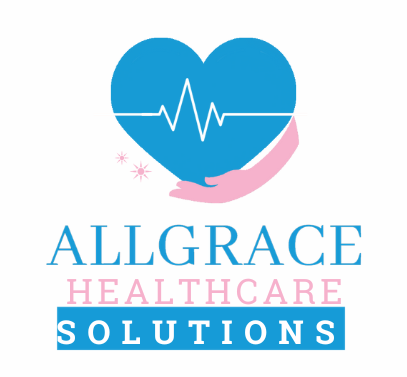Understanding the healthcare needs of elderly individuals is of utmost importance in ensuring their well-being and quality of life. As our loved ones age, their healthcare needs change, and it is crucial for us to be knowledgeable and proactive in addressing these needs. In this article, we will explore various aspects of elderly healthcare, including understanding their healthcare needs, navigating the healthcare system, finding the right healthcare providers, communicating effectively with healthcare providers, managing medications, identifying and addressing elder abuse, advocating for end-of-life care, understanding legal and financial issues, coping with caregiver stress and burnout, and building a support network. By gaining a comprehensive understanding of these topics, we can better care for our elderly parents and ensure they receive the best possible healthcare.
Key Takeaways
- Understanding your elderly parent’s healthcare needs is crucial for providing them with the best possible care.
- Navigating the healthcare system can be overwhelming, but there are resources available to help you and your parent.
- Finding the right healthcare providers is important for ensuring your parent receives quality care.
- Effective communication with healthcare providers is key to ensuring your parent’s needs are met.
- Managing your parent’s medications can be complex, but there are strategies to simplify the process and reduce the risk of errors.
Understanding Your Elderly Parent’s Healthcare Needs
Several factors can affect the healthcare needs of elderly individuals. Aging itself brings about changes in the body that can lead to various health conditions. Additionally, lifestyle factors such as diet, exercise, and social interactions play a significant role in overall health. It is essential to be aware of these factors and how they can impact our loved ones’ well-being.
Common health conditions in the elderly population include chronic diseases such as heart disease, diabetes, arthritis, and dementia. These conditions require ongoing management and care to ensure optimal health outcomes. Regular check-ups and preventative care are crucial in identifying and addressing any potential health issues before they become more severe.
Navigating the Healthcare System for Elderly Patients
The healthcare system can be complex and overwhelming for anyone to navigate, but it can be especially challenging for elderly patients. They may face difficulties in understanding medical jargon, accessing transportation to medical appointments, or coordinating multiple healthcare providers.
To overcome these challenges, it is essential to be proactive in advocating for your elderly parent’s care. This includes being actively involved in their medical appointments, asking questions to ensure clarity, and keeping track of their medical records and appointments. Utilizing resources such as patient advocates or case managers can also help navigate the healthcare system more effectively.
Finding the Right Healthcare Providers for Your Elderly Parent
Choosing the right healthcare providers for your elderly parent is crucial in ensuring they receive the best possible care. Factors to consider when selecting healthcare providers include their expertise in geriatric care, their communication style, and their accessibility.
There are various types of healthcare providers available for elderly patients, including primary care physicians, geriatric specialists, home healthcare providers, and hospice care providers. Each type of provider offers different services and expertise, so it is essential to consider your parent’s specific needs when making a decision.
Resources for finding healthcare providers include online directories, recommendations from friends or family members, and referrals from other healthcare professionals. It is also important to consider factors such as insurance coverage and location when choosing a provider.
Communicating Effectively with Healthcare Providers
Clear communication with healthcare providers is essential in ensuring that your elderly parent’s needs are met. Effective communication involves actively listening, asking questions, and providing relevant information about your parent’s health history and current symptoms.
Tips for effective communication with healthcare providers include preparing a list of questions or concerns before appointments, bringing a trusted family member or friend to appointments for support, and taking notes during appointments to ensure important information is not forgotten.
Common communication barriers can include language barriers, hearing or vision impairments, or cognitive decline in elderly patients. It is important to be aware of these barriers and find ways to overcome them, such as utilizing translation services or providing written information in larger font sizes.
Managing Your Elderly Parent’s Medications

Medication management is a critical aspect of elderly healthcare. Many elderly individuals take multiple medications for various health conditions, which can lead to potential medication-related issues such as drug interactions or incorrect dosages.
To manage medications effectively, it is important to create a medication schedule and ensure that medications are taken as prescribed. This may involve using pill organizers or setting reminders. It is also crucial to regularly review medications with healthcare providers to ensure they are still necessary and appropriate.
Identifying and Addressing Elder Abuse in Healthcare Settings
Elder abuse is a serious issue that can occur in healthcare settings. It is important to be aware of the signs of elder abuse, which can include physical injuries, unexplained weight loss, changes in behavior, or financial exploitation.
If elder abuse is suspected, it is crucial to take immediate action. This may involve reporting the abuse to the appropriate authorities, such as Adult Protective Services or local law enforcement. It is also important to remove the elderly individual from the abusive situation and provide them with support and resources.
Advocating for Your Elderly Parent’s End-of-Life Care
End-of-life care planning is an essential aspect of elderly healthcare. It involves discussing and documenting your parent’s wishes regarding medical treatments, resuscitation, and other end-of-life decisions.
Types of end-of-life care available include palliative care, which focuses on providing comfort and pain management, and hospice care, which provides support and care for individuals with a terminal illness. It is important to advocate for your parent’s wishes regarding end-of-life care and ensure that their healthcare providers are aware of these wishes.
Understanding Legal and Financial Issues in Elderly Healthcare
Legal and financial issues can often arise in elderly healthcare. It is important to have a comprehensive understanding of these issues to ensure that your parent’s rights are protected and their financial resources are appropriately managed.
Common legal challenges faced by elderly patients and their families include creating a power of attorney or healthcare proxy, establishing guardianship if necessary, and navigating estate planning. Financial challenges can include managing healthcare costs, accessing government benefits such as Medicare or Medicaid, and protecting against financial exploitation.
Resources for addressing these challenges include consulting with an elder law attorney, utilizing financial planning services, and accessing community resources such as senior centers or nonprofit organizations.
Coping with Caregiver Stress and Burnout
Caregiving for an elderly parent can be emotionally and physically demanding, leading to caregiver stress and burnout. It is important to recognize the signs of caregiver stress, which can include feelings of overwhelm, exhaustion, or irritability.
To cope with caregiver stress and burnout, it is crucial to prioritize self-care. This may involve seeking support from friends or family members, utilizing respite care services to take breaks from caregiving responsibilities, and seeking professional help if needed.
Building a Support Network for Your Elderly Parent’s Healthcare
Building a support network is essential in ensuring the well-being of your elderly parent. This network can include family members, friends, healthcare providers, and community resources.
Types of support available include emotional support, practical assistance with daily tasks or transportation to medical appointments, and access to community resources such as support groups or respite care services. It is important to reach out for help when needed and not try to shoulder all caregiving responsibilities alone.
Understanding the healthcare needs of elderly individuals and advocating for their care is crucial in ensuring their well-being and quality of life. By being knowledgeable about various aspects of elderly healthcare, such as navigating the healthcare system, finding the right healthcare providers, managing medications, identifying elder abuse, advocating for end-of-life care, understanding legal and financial issues, coping with caregiver stress, and building a support network, we can better care for our elderly parents. It is our responsibility to ensure that they receive the best possible healthcare and support as they age.
If you’re looking for personalized home care services for your elderly parents, you might find this article on All Grace Healthcare’s website helpful. It discusses tailored solutions for your loved ones, ensuring that their specific needs and preferences are met. With their compassionate approach to aging, All Grace Healthcare offers in-home care in North Carolina that focuses on providing the highest level of care and support. To learn more about their services and how they can help advocate for your elderly parents’ healthcare, check out their website: Personalized Home Care Services: Tailored Solutions for Your Loved One.






0 Comments